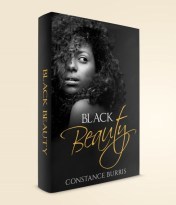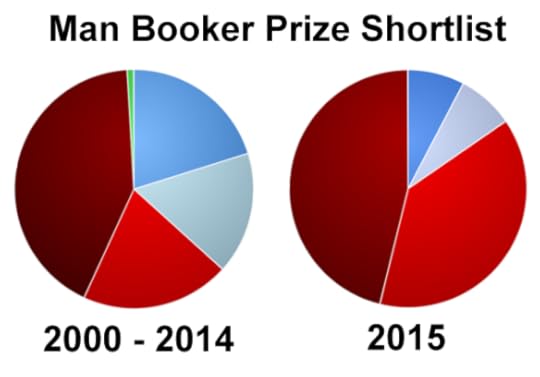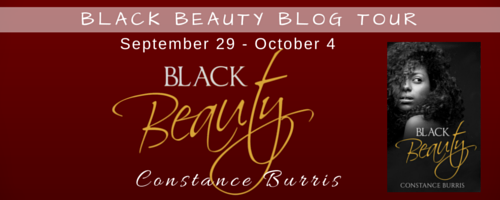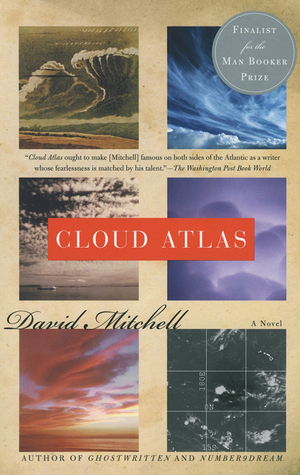B.R. Sanders's Blog, page 18
September 29, 2015
Disrupting Publishing Linkspam: 9/29/2015
It’s that time again: that time every week where I round up links to articles written by marginalized people pushing back against oppression in publishing. I’m aggregated as many marginalized voices as possible from as many vectors as possible, and the more intersectional the better. As always if you’ve read something I missed please link it in the comments.
“My Thoughts on ‘What Happened?!’ on YA Twitter on Friday 9/25/2015” by Debbie Reese
My end goal is books that don’t give non-Native children incorrect information. I think Carson’s book does that. Her protagonist pushes back on racism, but I believe the take-away for most readers is not sufficient to undo what she introduces with respect to grave-robbing Indians and measles infected blankets. I believe their takeaway is going to be a subconscious “yeah, those Indians were really savage.” I think that will be the take-away because grave-robbing Indians dovetails with the existing misinformation about who we were, and who we are.
“Criticism of Representation in YA is Essential” by Justine Larbalestier
I’ve heard many POC critics point out that most white writers only feel they can write about race from the point of view of POC. This feeds into the idea that “race” is not something that white people have. We are neutral. We are somehow outside race. Newsflash: no one is outside race.
“Some Thoughts on Tragic Queer Narratives” by C. Lundoff
The tragic queer narrative? Widely available. Very, very, very common. Arguably more common than positive depictions of queer characters and relationships. Books by LGBTQ authors with LGBTQ protagonists who are not tragic queers? Much less common and much harder to find. Every now and then, an out queer author makes it big despite the obstacles, which include “Queer author writes queer characters = autobiography,” “Queer author, queer books = won’t sell, don’t bother promoting, and of course, “Queer author, queer books, don’t bother picking up for representation or publication.” But those authors sell better if they write straight characters and they know it (see recent interviews with the likes of Emma Donoghue and Sarah Waters for examples).
“Moving Past Octavia Butler” by Justina Ireland for Book Riot
To always default to a single black woman is lazy, but more importantly it gives the impression of the Exceptional Negro, that there are few authors of color charting the sci-fi and fantasy waters, or that except for a few rare exceptions Black people don’t write sci-fi or fantasy.
“Black Speculative Fiction Is Protest Work” by Troy L. Wiggins for Book Riot
With the specters of death, poverty, and inequality still surrounding African American communities, many African American creators of speculative fiction are illuminating their desire for change in the pages of their literature.
“White as the Default” by Marissa Rei Sebastian for Book Riot
I had consumed hundreds of books, encountered thousands of characters and a large majority of those that were human, or humanoid, were white or white coded. Characters of Color were lacking and many of my favorite series were guilty of having all white characters or one or two token People of Color.
Interview with Nnedi Okorafor in Ventures
Now, I was born and raised in the West; thus, I was exposed to the genre of science fiction and its importance to and popularity in society. Nevertheless, I couldn’t relate to these narratives within the books and films because I never saw reflections of myself, my family, my cultures, Africa in those stories. When I read science fiction growing up, I felt more like a tourist in those stories than a citizen. So when I first started to tell my own stories, I didn’t lean toward writing science fiction; magical realism felt most natural. But as I got older and started noticing more whenever I travelled to Nigeria with family to visit family, I started noticing Nigeria’s (Africa’s) futuristic ways. Then I started imagining. Then I looked for novels imagining what I was seeing and imagining and realized there were none. So I decided to start writing some. And because I was exposed to the genre of science fiction, I wrote the stories that I created from my experiences and observations in Nigeria in the style of the genre of science fiction that I was exposed to because I grew up in the United States.
That’s my longwinded way of saying, my being Naijamerican (Nigerian American) played a pivotal role in my writing my flavor of African science fiction, despite the fact that I really had no previous examples.
“The Need For Real, Honest Diverse Books: A South Asian Perspective” by Meghana Ranganathan at S.C. Write
I’ve come to realize, most of these movies and books end up being about white people experiencing India, not Indians sharing their experiences (e.g. Best Exotic Marigold Hotel, Outsourced). There are exceptions, but I remember my first picture book about India when I was little got me so excited in the bookstore, because it was a book about someone like me. I took it home and opened it, only to find it be about a white girl going to India on vacation and her experiences.
“Five Things I’d Like To See In Urban Fantasy” by Angelia Sparrow
2) Paranormal creatures that fit the demographics. Here in Memphis, we have 10,000 Asian people. But because we have 9000 Vietnamese and only a few hundred Japanese, we would be far more likely to have a Ma cà rồng (Vietnamese vampires) than a kitsune.
“Your Work Matters” by Kameron Hurley
And, of course, this is assuming we’re all on an equal playing field. I get angry, often, at writers I see who are generally talented or not-so-talented white guys, who seem to be floating up through the publishing ecosystem like they shit gold, and it grates on me. You are always going to wonder how things would have gone if you had more advantages: if you were born a guy, or born a different color, or born rich, or had better brain chemistry, or if you were better at parties.
You’ll always wonder.


Book Review & Giveaway: BLACK BEAUTY
Amazon | iTunes | Barnes & Nobles | Goodreads | Book Depository
About the Book At Vista Apartment Complex, life drastically changes for four of its residents when they decide to do business with Crazy Jade—the supposed voodoo witch who can grant your wish for a price.
At Vista Apartment Complex, life drastically changes for four of its residents when they decide to do business with Crazy Jade—the supposed voodoo witch who can grant your wish for a price.
Shemeya wants the confidence to stand up against the girls bullying her at school, but she soon has to choose between keeping her dreadlocs or living a normal life. After catching her boyfriend cheating, Latreece just wants to have the same curves as all the other girls. Ashley will do whatever she can to have “White Girl Flow”, but takes her pursuit too far when she steals from Crazy Jade.
Everyone who comes into contact with Crazy Jade soon learns the true price of her magic—and how horribly wrong it can go.
Enter the Giveaway!
There is a tour wide giveaway for the book tour of Black Beauty. These are the prizes you can win:
One of Two $10 Amazon Gift Cards(US) or One of Two ecopies of Black Beauty
Here is the link to the rafflecopter giveaway:
a Rafflecopter giveaway
//widget-prime.rafflecopter.com/launch.js
B’s Review of BLACK BEAUTY
Notes on Diversity:
I think a better word for this book than diverse is authentic. This is a book for blerds by a blerd; this is fantasy/horror deeply drawn from and steeped in the lived Blackness. That is literally the crux of all of the stories in this book up until the last two. The reason the book works is because Constance Burris is a Black woman who has lived all her life navigating the treacherous waters of Eurocentric beauty norms.
Virtually all the characters are Black, and they live in a specific locale–one apartment complex in Oklahoma City. The specificities in the book really do add to the authenticity, the reality of it, which heightens the horror embedded in the stories, even as elves start showing up and snakes start sprouting from people’s heads. These stories are deeply, deeply rooted in an intersectional experience of Black womanhood.
Readers looking for representation along other axes of marginalization (queer characters, characters with disabilities, religious diversity) won’t find much here, but the above is incredibly rich.
Review:
Black Beauty is a set of connected fantasy/horror short stories tethered together by setting–the Vista apartment complex–and the apparent magical abilities of Crazy Jade, one the complex’s residents. Word gets out that, for a price, Crazy Jade can fix you up. But all of her dealings seem to come off slightly wrong.
We follow as residents of the apartments fall prey to Crazy Jade, one after another. First Shemeya, who Crazy Jade offers to help to stave off bullies. Then Ashley, who comes to Jade seeking a relaxer for her hair. Andre catches Jade’s bad side after a nasty remark about Black women’s unworthiness. Latreece, like Ashley, comes calling to make herself more attractive. It’s Latreece who finally dislodges Sean, who has a secret, and whose secret reveals the truth of Jade’s power. Then there’s a ferocious showdown. To say anything more than this is to spoil the book.
What I loved about Black Beauty was its ensemble cast. I started with Shemeya, rooting for her, and in her story she’s pitted against Latreece. By the time Latreece’s story comes along we’ve had enough distance and plot from Shemeya that I was open to Latreece’s perspective. She’s still harsh; she’s still a bully, yes, but in her story we learn why. There’s nuance to the characters Burris writes, to the way they engage. There’s a theme of bristling bravado/redemption that stretches throughout, and I, as someone who has a lifelong case of foot-in-mouth disease, can relate to that.
That said, the book went to fast for me, especially the last two chapters. I liked that the ending was messy, that not everything was tied up in a clean bow at the end, but there was a lovely amount of tension and careful reveal in the relationships between the apartment residents in the first few chapters/stories. The last two stories, which are structurally different (in a spoilery way) are full of action and exposition all packed together. I wish there had been a couple of other chapter/stories included in this part of the book to better explain Jade’s motivations, her plans, and let that build and simmer a little longer. Those reveals, I think, needed more space to breathe.
I am deeply curious about what happened after the book ended. I sincerely hope for some follow-up stories in the future. Please say there are follow up stories coming.
About Constance Burris Constance Burris is on a journey to take over the world through fantasy, horror, and science fiction. Her mission is to spread the love of speculative fiction to the masses. She is a proud blerd (black nerd), mother, and wife. When she is not writing and spending time with her family, she is working hard as an environmental engineer in Oklahoma City.
Constance Burris is on a journey to take over the world through fantasy, horror, and science fiction. Her mission is to spread the love of speculative fiction to the masses. She is a proud blerd (black nerd), mother, and wife. When she is not writing and spending time with her family, she is working hard as an environmental engineer in Oklahoma City.
Website | Facebook | Twitter | Goodreads Author Page |Amazon Author Page


September 28, 2015
Roundup: September 21-27, 2015

click here to play Dhirnalli
Wanderings on the Internet
I released a second interactive story through my newsletter! Dhirnalli is free to play here.
Just a reminder that some of my works from the past year are eligible for awards and stuff.
The Supernatural Haikus now have their own blog.
Writing Update
I am sooooo close to the end of the first draft of The Search. I am getting impatient; I want the draft to be done so I can raze it to the ground and get started with the redraft. Make the book better, stronger, tighter. *Sigh* It’s not done yet, though. Sorcha and Shayat have reunited. Both have some catching up to do.
Want posts like this delivered to your inbox? Sign up for my newsletter!


September 25, 2015
Book Review: CLOUD ATLAS
Notes on Diversity:
This is another book like The Windup Girl that is what I would call “surface diverse”–as in scratch the surface and all the diversity is gone. It’s wrapped up in a veneer of diversity, but it’s just a veneer. And for a reader like me who craves non-mainstream narratives (because I am marginalized along multiple axes, and I am sick of dominant narratives being shoved down my throat) these surface diverse books really stick in my craw.
There are Asian characters in Cloud Atlas1. There are Moriori characters, though none of them are ever relegated to anything but side characters who must be rescued by an empathic/enlightened white man. There is Luisa Rey, a scrappy ’70s Latina private eye. There are far-future characters who live in Hawaii, who as far as I can tell, are not coded or explicitly raced, but I read them as white.
There are queer characters. Robert Frobisher, a brilliant young composer, and Rufus Sixsmith, smitten by Forbisher. The pair of them star-crossed and epistolary, and ultimately Tragic Queers–one of them suicidal and the other forever pining the loss. I don’t know much about Mitchell, but the narrative strikes me as the straight-person-writes-the-Bury-Your-Queers situation all over again. So, you know, it’s “diverse”…but is it the kind of diversity that really gets us anywhere?
Review:
So. The book.
I was expecting to love the book. I love narrative structures; I love audacious books that play with expectations of narrative structure. I knew very little going into David Mitchell’s Cloud Atlas except that it was speculative fiction and that it was played with structure. Something about nested narrators.
It does play with structure. In fact, its whole conceit rests on the structure piece–if you can’t go with that, then the book folds up like a house of cards in a slight breeze. If literally any part of the fabulous dazzling structure of the book doesn’t work for you, then the entire book doesn’t work for you, which renders the book not really a book so much as a magic trick, a gimmick.
The structure is intricate and fascinating, unfurling as it does starting in the past, creeping up to the present, then into future-dystopian Korea, and landing in far-future Hawaii before furling up again in reverse, revisiting the narrators from the previous sections in opposite order. Each of the narrators has a distinct voice and tone; some Mitchell pulls off beautifully. For me, the Adam Ewing in the first and last sections worked well, as did the Luisa Rey sections.2 I was emotionally gutpunched by the Frobisher sections, but for the wrong reasons.3
The central piece of the book–“Sloosha’s Crossin’ an’ Ev’rythin’ After”–did not work for me at all. Partly this is because as someone with a ‘dumb’ accent4 I am particularly attuned to the way certain accents serve as markers of stupidity/class and how writing in dialect by people without those accents serves to communicate that, and this generally rubs me the wrong way. I literally had to grit my teeth to read this section. Partly this section did not work for me because the book should have ended here. We did not need to re-furl after “Sloosha’s Crossin'”; everything that happens after are essentially drawn-out codas, stuck after simply for structure’s sake. The actual plot, what little there is of it, truly ends in this section. All the tiny reveals stuck in the ending codas could have neatly been worked in, as foreshadowing, beforehand.
All this is to say that I do love it when authors play with structure, but only if they have a depth of story to support that structure. Only if their actually doing something with that structure. I’m not certain that the structure served anything in Mitchell’s plot here but showing off. The plot was exceedingly thin, actually, stretched across some very fancy digs. The structure wasn’t enough.
~
1The Sonmi-451 section is set in a dystopian Korean state. I don’t have a specific enough sense of Korean culture to know if Mitchell succeeded in his representation of Koreans here. I know that Mitchell lived for a time in Japan, and I wonder if he got future-Korea right, or if it’s “Korea” with all the blanks filled in with Japan. I don’t know enough about either to be able to tell.
2We can’t even really sink into the Luisa Rey sections, either, as they are revealed to possibly not to have happened. In the Cavendish sections, Luisa Rey’s sections are revealed to be a manuscript he is reading, which makes me question if she is even real. If a Latina is not real in your story, does she count to your book’s diversity?
3Because I’m queer, basically any queer narrative is going to grab me by the shirtfront and not let me go. I was more heavily invested in Rufus Sixsmith and Robert Frobisher than any other characters in the book even though as soon as they were introduced I had an inkling of where that story thread was going. I strongly, strongly dislike the Tragic Queers trope, especially if it’s written by someone who does not identify as queer themselves.
4Even after years of trying lose it in my youth to make myself acceptably smart I still have distinct traces of my East Texas twang. Not a genteel southern drawl, mind you, but that harsh, chopped Texas twang. The stuff of Dubya.
Want posts like this delivered to your inbox? Sign up for my newsletter!


September 24, 2015
Cover Tour: THE PINE BARRENS by Veronica Dolginko

Cover artist: Anna Kowalczewska
Hi Veronica! Tell us about the cover of THE PINE BARRENS: what are the elements in the cover, and how do they relate to your book?
The cover is a small snapshot of one character in the book who is working with a rebellion to overthrow a Draconian government. She is used as a tool by the revolution to murder high ranking officials because one of the main agitators saw her kill several people around the city and rather than turn her in, he approached her for help. The cover is showing a moment of her disposing of the bodies, which tend to be the only times that her mind is silent.
~
Anything else we should know (giveaways, blog tour, do you have a website/twitter/etc)?
No giveaways or anything as of yet. My twitter handle is snark_is_free and I can be found on Facebook (Veronica Dolginko).
~
About the Book
In a corrupt society that once resembled modern-day San Francisco, an aristocracy comes to power with a different way of running things – that is to say, viciously. All goods are contraband; brain washing is Sunday’s communal; physical punishment is an occupation; and individuality is a mere presumption. An uprising is underway, but in its midst is a killer. Does this bold Dolginko creation embody, in some perverse roundabout fashion, the striving of those masses long deprived of a champion?
While The Pine Barrens’ killer is exploring her identity, Connor, a former convict, is finding his own. In the midst of trying to understand this new way of life and preserve a modicum of dignity, Connor begins to make an impact on the city’s young revolutionaries. The older man shows them that they must know who they are and what they want before they can pursue their aspirations. Does Connor have the strength to help the revolutionaries find, not only themselves, but find their way to Utopia? Can the revolutionaries change what is necessary about themselves for the greater good of mankind?
The Pine Barrens is a forthcoming novel by Veronica Dolginko from F.W.Fife, an imprint of The Zharmae Publishing Press.
Want posts like this delivered to your inbox? Sign up for my newsletter!


September 23, 2015
What Works of Mine You Can Nominate And How To Do It
I’ll just leave this here, just in case anyone happens to be interested.
Actually, hey, if you’ve read my work this year and you were impressed by it, consider nominated it for an award. It’s excruciatingly hard for me to say that, for a lot of reasons1, but I’m just putting that out there.
Nominate me! The links below go to spots where you can nominate these pieces relevant awards (these are open nominations processes). Haven’t read the piece in question? Email me for a free copy. Sharing is caring. Here is what I’m eligible for:
Novels:
Ariah, published in May 2015 by The Zharmae Publishing Press, is eligible for the following:
Hugo (novel) – Recommendations are being collected here and here. Probably other places, too.
Nebula (novel) – note: nominations do not open until November 15
BSFA (novel) – note: anyone can make suggestions; only BSFA members can officially nominate
British Fantasy Awards – note: nominations are not yet open
The ALA GLBTRT Barbara Gittings Literature Award for Fiction
Tiptree Award – nominations open
Mythopoeic Fantasy Award for Adult Literature – nominations can be emailed to this address
Novellas:
Cargo, published in May 2015 by The Zharmae Publishing Press, is eligible for the following:
Hugo (novella) – Recommendations are being collected here and here. Probably other places, too.
Nebula (novella) – note: nominations do not open until November 15
BSFA (short fiction) – note: anyone can make suggestions; only BSFA members can officially nominate
British Fantasy Awards (short story) – note: nominations are not yet open
Novelettes:
Matters of Scale, published in April 2015 by Inkstained Succubus Press, is eligible for:
Hugo (novelette) – Recommendations are being collected here and here. Probably other places, too.
Nebula (novelette) – note: nominations do not open until November 15
Short fiction:
“The Demiurge,” published in The Wild Ones Quarterly Queer Lit Rag, issue 1, February 2015
Hugo (short story) – Recommendations are being collected here and here. Probably other places, too.
Nebula (short story) – note: nominations do not open until November 15
“The Scaper’s Muse,” published in Glitterwolf Magazine, issue 9: Gender, July 2015
Hugo (short story) – Recommendations are being collected here and here. Probably other places, too.
Nebula (short story) – note: nominations do not open until November 15
BSFA (short fiction) – note: anyone can make suggestions; only BSFA members can officially nominate
British Fantasy Awards (short story) – note: nominations are not yet open
1It’s excruciatingly hard to just assert that I should/could be nominated for any award or prize or anything like that because I have developed a monster case of Literary Imposter Syndrome. It’s a lot easier to slip into the shadows and go unnoticed than to reach for any sort of brass ring.
I’ve written this post letting all of my insecurities and double-guessing hang out in the strikethroughs because I feel like people should see how marginalized writers self-censor and taken themselves out of the running. How we chop ourselves off at the knees and ankles.
I had to think through how a white cishet man would write this post. Would he hem and haw, or would he just bust in like the Kool-aid man all like NOMINATE ME YOU KNOW YOU WANT TO. I had to channel that bravado to even to do this kind of double-thinky footnote-y version of that.
I originally titled this post, very politely “Works Eligible for Awards in 2015 (Just So You Know).”


September 22, 2015
Disrupting Publishing Linkspam: September 22, 2015
It’s that time again: that time every week where I round up links to articles written by marginalized people pushing back against oppression in publishing. I’m aggregated as many marginalized voices as possible from as many vectors as possible, and the more intersectional the better. As always if you’ve read something I missed please link it in the comments.
“On Being a Nice Author” by Justine Larbalestier
You’ll notice I keep putting “nice” in quote marks. That’s because it’s a word I’m deeply suspicious of. Telling people to be nice is often a way to get them to shut up. Frankly, as a woman, I’ve had a few too many people tell me I’m not being nice when I express an opinion they disagree with.
“Why We Need to Build More Diverse Worlds in Fiction” by Bernard Hayman for The Toast
The real importance and impact of worldbuilding lies in what worlds we choose to pay attention to, which narratives we choose to engage with, whose stories we choose to tell. Tell a variation on the same story enough times to enough people and it can become a kind of truth by consensus. Without diverse worldbuilding in fiction, without all kinds of characters and stories to love, we can’t see the whole picture.
“The Man Booker 2015 Shortlist is Apalling” by Nicola Griffith

“When Your ‘Other’ Isn’t ‘Other’ Enough” by Adrianne Russell
None of my feedback’s been about my ability: “this doesn’t ring true…” “readers won’t relate to this girl…” Coded language like a mofo.
— adrianne (@writersrepublic) September 15, 2015
“After Yi-Fen Chou: A Forum: 19 Writers Respond to Michael Derrick Hudson’s Yellowface” at Asian American Writer’s Workshop (read it allllllll)
On a personal level, as someone who’s writing about a woman of color not fully remembered by history, I’ve been told to take out all her quotes but leave in the one by James Joyce. I’ve sat through classes where people have written about their experiences, at home and abroad, with people of color who remain either nameless and faceless or over-exotified.
– Kavita Das
“I Gave A Speech About Race to the Publishing Industry and No One Heard Me” by Mira Jacob for Buzzfeed
Here is the thing about how discrimination works: No one ever comes right out and says, “We don’t want you.” In the publishing world, they don’t say, “We just don’t want your story.” They say, “We’re not sure you’re relatable” and “You don’t want to exclude anyone with your work.” They say, “We’re not sure who your audience is.”
I believe that. I believe that there are still some people in this industry who are not sure who my audience is. But I do not for a minute believe that is because my audience doesn’t exist.
“A Guide For Skinny Writers Who Want to Write Fat Characters” by Sarah Hollowell
Here’s the thing. If you’re a skinny writer, and you have always been skinny, please, please, please do not write about the fat experience. Do not write books about what it’s like to be fat, especially not if you’re like “being fat is awful!” Do not write books about fat characters on weight loss journeys. Do not write books where the entire plot and core and theme is that this character is fat and this is what it means to them to be fat.
If you’re a skinny writer, do not write books about fat characters being fat.
You can write a story about anything else.


September 21, 2015
Roundup: September 14-20, 2015

read about caravaner elves and assassin elves and pirate elves!
Wanderings on the Internet
HEY! HEY! Just a friendly reminder that if you want paperback copies of Ariah, Resistance, and Cargo for free-sies that the Aerdh Sweepstakes is going on now! Sign up! The sweepstakes close midnight MST on Wednesday, but everyone who enters gets consolations prizes. Sweepstakes details are here if you missed them the first time.
If you are so inclined, browse the Supernatural Haikus.
Writing Update
Started another interactive fiction piece. This one’s about ambivalent superheroes.
I am sooo ready to be done with the first draft of The Search so I can burn it down and rewrite it into a better second draft. Alas, I’m not done *quite* yet, but I am 5k close (bringing the total word count for draft 1 to 110k). Sorcha and Shayat are currently dealing with some (quite literal) ships in the night miscommunication issues.
Want posts like this delivered to your inbox? Sign up for my newsletter!


September 19, 2015
Interactive Fiction
Newsletter Aerdh Storylets
Each of these storylets can be played as stand-alone minigames, but each builds on the last as well. Play them separately, or play them in sequence. It’s your choice!


Newsletter
Need a weekly hit of B R Sanders? Find yourself craving just…more? Lucky for you, there’s a newsletter! Currently, the newsletter (usually) goes out Sunday mornings, and typically features the following:
Q&As with me when questions are provided via this always-open form
Flash fiction
Interactive storylets about the Aerdh Universe
Excerpts from works in progress or recently released works
Various announcements
Updates on what I’m reading
Sound like your kind of thing? You can sign up here!
Afraid you’ve missed something awesome? No worries–an online archive of all issues is maintained here.









